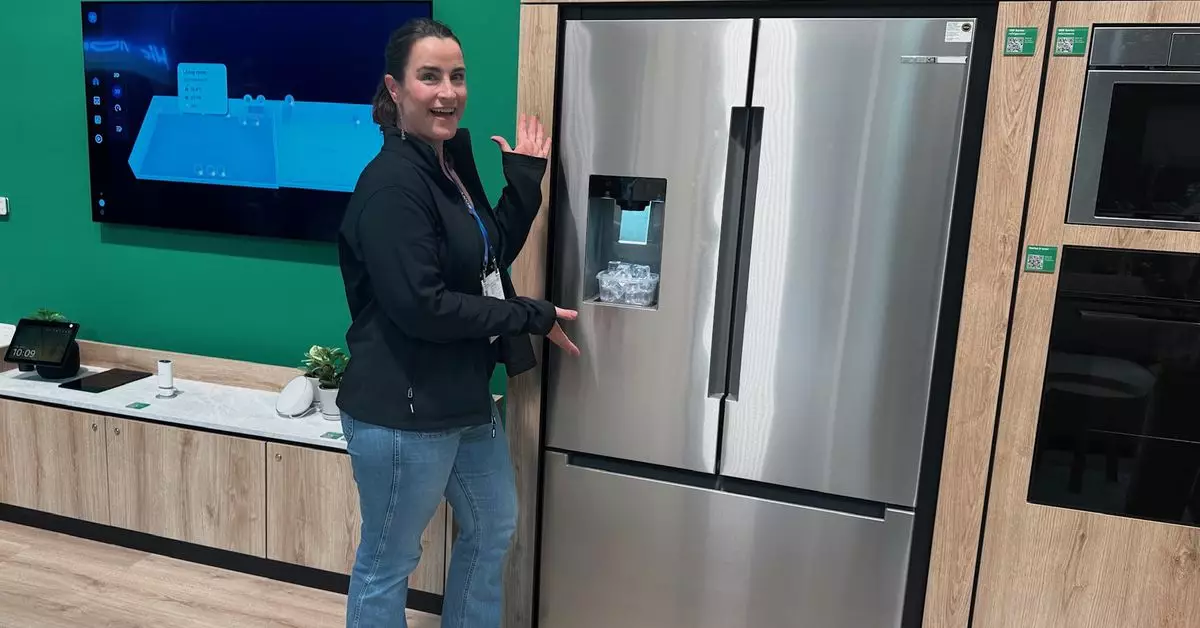As the smart home market continues to evolve, manufacturers are focusing on interoperability and user experience. Bosch, a renowned name in home appliances, has recently unveiled its first Matter-enabled refrigerator—the 100 Series French Door Bottom Mount Refrigerator—at the Consumer Electronics Show (CES). This launch is indicative of a broader commitment to integrating smart home technology with practical utility, heralding a new era for kitchen appliances.
Matter is rapidly sprouting as a leading standard for smart home devices, allowing seamless interaction across diverse manufacturers and platforms. Lore has it that, while many smart devices may connect to the internet, the real challenge lies in ensuring they can communicate effectively with one another. Matter seeks to bridge this gap. Developed by a consortium of tech giants, including Apple and Amazon, Matter is designed to facilitate a common language among various connected devices.
In simple terms, it permits devices within a smart home ecosystem to operate on local networks rather than relying on cloud services. This approach not only enhances security and privacy but also significantly reduces latency, meaning commands initiated by users or other devices will execute almost instantaneously.
The Bosch 100 Series refrigerator, priced at approximately $2,500, is not just another fridge; it’s a smart appliance that reflects a paradigm shift in how we view and interact with our kitchen equipment. Launching in the United States in spring 2024, the refrigerator supports Matter 1.3, which introduces features like remote temperature control and the ability to receive timely notifications via compatible smart home interfaces.
One standout feature is the capability to receive alerts if the refrigerator door is left open, highlighting how such appliances can serve as integral parts of a smart home ecosystem. While traditional smart fridges already boast similar functionalities, Matter enhances these features by establishing a more efficient and reliable connection.
Eelco Lammertink, a representative from BSH (Bosch’s parent company), has disclosed plans to roll out Matter technology across the entire Bosch, Siemens, and Thermador appliance lines. Not only is the refrigerator the first of its kind to be Matter-enabled, but BSH has ambitions to incorporate this technology into additional appliance categories moving forward. This strategic initiative aims to create a unified and comprehensive smart home experience, enabling enhanced operation of multiple devices under one compatible umbrella.
Currently, Matter interoperability is limited, with only platforms like Samsung SmartThings and Home Assistant fully supporting appliance integration. However, Lammertink has indicated that Amazon’s support is on the horizon, marking a pivotal moment for the expansion of Matter-enabled appliances.
While the future is certainly bright for new smart appliances equipped with Matter, older devices may not enjoy similar updates. The BSH representative confirmed that retrofitting existing appliances to include Matter capabilities poses significant risks, potentially “bricking” these devices. This leaves many consumers with older models pondering the fate of their current kitchen gear and weighing the pros and cons of investing in the latest technology.
Although there is disappointment among consumers hoping to keep their current appliances relevant, BSH’s transparency regarding the difficulties of integration underscores the complexity of technological advancement in this arena.
Looking ahead, Bosch plans to integrate energy reporting and management capabilities into its Matter-enabled refrigerators. This move aligns with a broader trend in the smart home sector toward sustainability and energy efficiency. By being part of a Matter-enabled energy management system, the Bosch 100 Series will allow users to monitor and optimize energy usage, making informed decisions that ultimately contribute to a more sustainable household.
With the introduction of the Bosch 100 Series refrigerator, the potential of Matter to reshape the smart appliance landscape is becoming increasingly apparent. As technology evolves, consumers are poised to benefit from enhanced connectivity, security, and energy management—all of which suggest a promising future in home automation. As devices from various manufacturers become interoperable, the dream of a fully integrated smart home is gradually manifesting. Bosch’s commitment to this transformative standard marks a significant milestone in that journey, and it will be fascinating to observe how other manufacturers will respond in the coming years.

